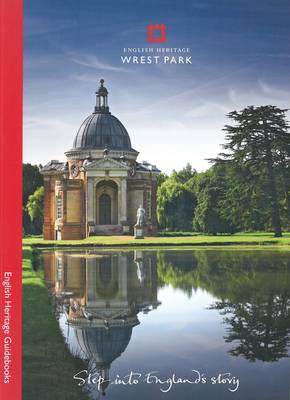English Heritage Red Guides
1 total work
Wrest Park is an exceptional rarity. Its grounds contain one of the few remaining formal gardens of the early 18th century and the house is a near unique example of English architecture following the style of an 18th century French chateau. For over 600 years the estate was home to one of the leading aristocratic families in the country, the de Greys. They rose to prominence under Edward IV (r.1461-83), who made Edmund Grey 1st Earl of Kent. More than 200 years later the formal gardens and Long Water were created by Amabel Benn, together with her son, Antony, the 11th earl, and his wife, Mary. Antony's son, the Duke of Kent, laid out what is not Wrest's most exceptional feature, its formal woodland garden, employing leading garden designers to create an ordered landscape of woodland avenues ornamented with statuary and garden buildings. The duke's granddaughter Jemima brought in 'Capability' Brown to soften the edges of the garden, and introduced fashionable features, such as the bath house and Chinese temple, while preserving the heart of the formal layout. Since 1900, Wrest has had a chequered history.
It was rented to the American ambassador for a time, and used as a hospital during the First World War, when the house was damaged by fire. Although it was repaired, Wrest was sold in 1917, after which it fell into decline. From 1948 it was home to the National Institute of Agricultural Engineering, later the Silsoe Research Institute. Today it is owned by English Heritage, which is working to restore the house and its glorious amalgam of three centuries of English gardens.
It was rented to the American ambassador for a time, and used as a hospital during the First World War, when the house was damaged by fire. Although it was repaired, Wrest was sold in 1917, after which it fell into decline. From 1948 it was home to the National Institute of Agricultural Engineering, later the Silsoe Research Institute. Today it is owned by English Heritage, which is working to restore the house and its glorious amalgam of three centuries of English gardens.
